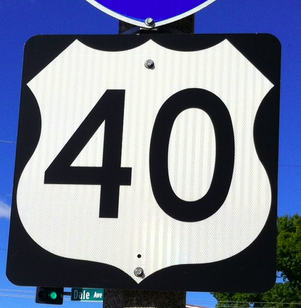Maplewood city council’s July 10 budget work session raised important questions regarding utilization of Proposition P funds to advance policing and public safety. Discussion involving the council, city staff, Police Chief Kruse, and Lieutenant Nighbor revealed an opportunity to further explore community policing and how to advance public safety for all.
It is necessary to understand that community policing does not have a set protocol; there is no handbook. Community policing seeks to bolster public safety as an outgrowth of engagement, meaning that its exact form is specific to each community.
At a December 7, 2017 community meeting in the City of St. Louis, four leaders in community policing lived out the philosophy in a lengthy conversation with thirteen attendees to emphasize that community policing is ultimately a culture change that emerges from public engagement; relationship-building; and partnerships involving community members, local agencies, and police officers. It is community-oriented with all voices accounted for and considered. It requires a commitment from leadership. It is reciprocal. It is transformative. As evidence of its success, Charlotte, North Carolina’s former police chief, Rodney Monroe, noted a striking increase in closed homicide cases after shifting to community policing practices.
The Maplewood Community Builders have presented a reason to further community policing efforts in Maplewood. The group’s survey of 440 people indicated that nearly one in three respondents believe that Maplewood police officers do not treat all people fairly. The Maplewood Police Department has demographic data that can add deeper understanding; however, the Maplewood Community Builders empirically demonstrated a problem. Through community policing tactics of engagement, relationship-building, and partnership, Maplewood has an opportunity to address this racial equity concern in an evidence-based manner. The voices of residents are an invitation to engage in community policing and confront the essential concern of disparate police treatment.
Kyle Oberle; a Maplewood resident since 2009, former teacher, and past candidate for city council; is graduating in August with a Master of Social Work concentrating in social and economic development and specializing in policy.

You have “empirically” demonstrated a problem? I’d like to know more about your survey taking methodology before I accept that you’ve demonstrated anything. A sample of 445 in a city of 8,000 is pretty small. Also, who designed the survey? How did you check for implicit bias in the questions? How did you gather the responses? How did you ensure a balanced sample of Maplewood demographics? Can we be sure this survey accurately represents the sentiments of Maplewood residents and not just the hand picked thoughts of your friends?
Community Policing: A Handbook for Beat Cops and Supervisors
By Howard Rahtz https://amzn.to/2JRMaL3
Community Policing: A Practical Guide for Police Officials
By Lee P. Brown,
From Perspectives on Policing, U.S. Department of Justice Office of Justice Programs
https://www.ncjrs.gov/pdffiles1/nij/118001.pdf
Community Policing and Police Interventions
https://onlinelibrary.wiley.com/doi/10.1002/9781118868799.ch13
Interesting list DugganPubs. But, what is your point? To me “no handbook” simply means we all have to work together to define what Community Policing is for our community because Maplewood, Mo does not have the same needs as Brooklyn, NY or even Clayton, MO. Thanks, Kyle, for the thought provoking idea. We don’t have anything to vote on with regard to the Prop P funds, so I’m happy to know these ideas are being presented to the City Council and Police Chief.
?